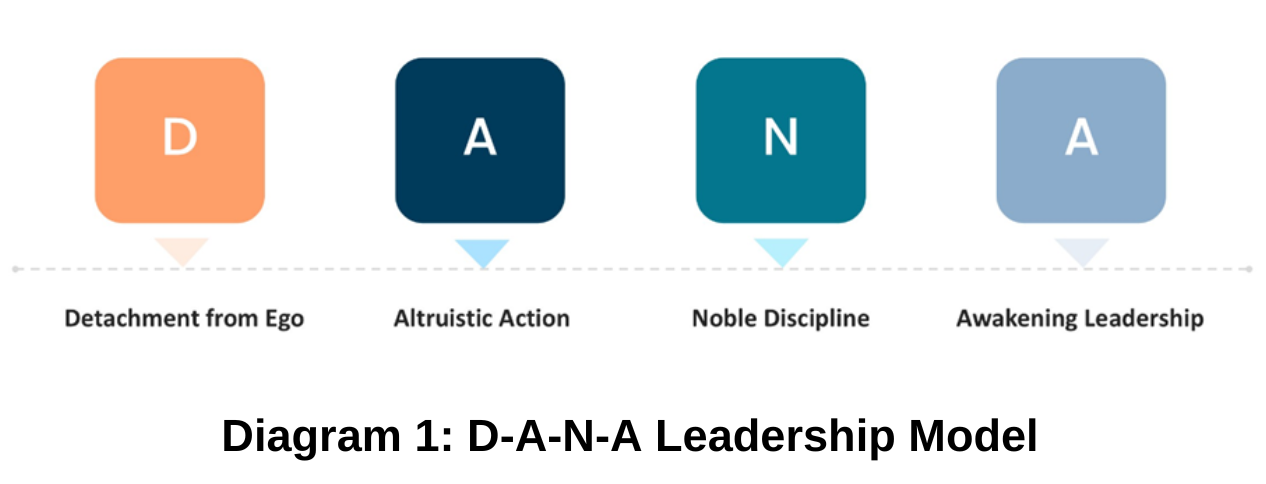Leadership Development through the Practice of Dana Parami
Keywords:
Development, Leadership, Dana ParamiAbstract
This research article aims to: 1) explore the concept of Dana Parami (Perfection of Giving) within the context of Theravada Buddhist philosophy; 2) examine the relationship between Dana Parami and the characteristics of ethical leadership; and 3) investigate practical approaches to applying Dana Parami in developing leadership at the individual, community, and organizational levels. This study employs a qualitative research methodology, grounded in Theravada Buddhist philosophy and ethical leadership theories as its conceptual framework. Data were analyzed through content analysis and presented using descriptive narration. The findings reveal that: 1) Dana Parami is a core virtue emphasizing ego reduction, cultivation of loving-kindness, and spiritual development, clearly illustrated in the Pali Canon, such as in the Vessantara Jataka; 2) Dana Parami is directly associated with the attributes of ethical leadership, including selflessness, compassion, responsibility, and the commitment to promote the common good; and 3) the application of Dana Parami can enhance leadership at the personal level (through inner moral cultivation), the community level (through volunteerism), and the organizational level (through socially responsible policies). The significant contribution of this research is the “D-A-N-A Leadership Model,” a novel conceptual framework for developing leadership from within, grounded in the principles of Dana Parami. This model holds practical relevance for leadership training across various levels with a strong emphasis on ethical integrity.
References
ชวัลวิทย์ อรณุปราการ, นวลวรรณ พลูวสุพลฉัตร และสรวิชญ์ วงษ์สอาด. (2564). การใช้บารมี 10 ในการพัฒนาตนเองและสังคม. วารสารวิชาการ มหาวิทยาลัยราชภัฏนครปฐม, 10(2), 1–15.
พระมหาพงศ์ศิริ ปญฺญาวชิโร. (2564). วิเคราะห์ทานบารมีในคัมภีร์อรรถกถาชาดก. วารสารสหวิทยาการมนุษยศาสตร์และสังคมศาสตร์, 4(1), 63–73.
รัฐพงค์ ทองแปง, พระครูสมุห์ธนโชติ จิรธมฺโม และทรงศักดิ์ พรมดี. (2564). ศึกษาวิเคราะห์การบำเพ็ญทานบำบารมีีของพระเวสสันดรในเวสสันดรชาดก. วารสารพุทธศาสตร์ศึกษา, 12(1), 175-187.
พุทธชญานันท์ จันทร์โสม. (2557). ศึกษาวิเคราะห์พัฒนาการบำเพ็ญบารมีในพระพุทธศาสนาเถรวาท. วิทยานิพนธ์ปริญญาดุษฎีบัณฑิต. บัณฑิตวิทยาลัย : มหาวิทยาลัยมหาจุฬาลงกรณราชวิทยาลัย.
มหาวิทยาลัยมหามกุฏราชวิทยาลัย. (2536). พระไตรปิฎกและอรรถกถาแปล ฉบับมหามกุฏราชวิทยาลัย. (พิมพ์ครั้งที่ 3). กรุงเทพฯ : โรงพิมพ์มหามกุฏราชวิทยาลัย.
สำนักงาน ก.พ. (2566). รายงานการฝึกอบรมภาวะผู้นำในภาคราชการ. กรุงเทพฯ: สำนักงานคณะกรรมการข้าราชการพลเรือน.
เอกชัย อุไรสินธ์. (2564). แนวปฏิบัติตามปฏิปทาของพระโพธิสัตว์ในสังคมไทยปัจจุบัน. วิทยานิพนธ์ปริญญาปรัชญาดุษฎีบัณฑิต. กรุงเทพฯ: มหาวิทยาลัยธรรมศาสตร์.
Avolio, B. J., & Hannah, S. T. (2008). Developmental readiness: Accelerating leader development. Consulting Psychology Journal: Practice and Research, 60(4), 331–347.
Bass, B. M., & Avolio, B. J. (1994). Improving organizational effectiveness through transformational leadership. Thousand Oaks, CA: Sage Publications.
Goleman, D., Boyatzis, R., & McKee, A. (2002). Primal leadership: Realizing the power of emotional intelligence. Boston, MA: Harvard Business School Press.
Greenleaf, R. K. (2002). Servant leadership: A journey into the nature of legitimate power and greatness. Mahwah, NJ: Paulist Press.
Greenleaf, R. K. (2002). Servant leadership: A journey into the nature of legitimate power and greatness. Mahwah, NJ: Paulist Press.
Harvard Business Publishing. (2024). 2024 Global Leadership Development Study. Boston, MA: Harvard Business Publishing. https://www.harvardbusiness.org/leadership-learning-insights/2024-global-leadership-development-study/
Kanungo, R. N., & Mendonca, M. (1996). Ethical dimensions of leadership. Thousand Oaks, CA: Sage Publications.
Moldoveanu, M., & Narayandas, D. (2019). The future of leadership development. Boston, MA: Harvard Business Review. https://www.researchgate.net/publication/33148 0385_The_Future_of_Leadership_Development

Downloads
Published
How to Cite
Issue
Section
License
Copyright (c) 2025 Institute of Sufficiency Journal

This work is licensed under a Creative Commons Attribution-NonCommercial-NoDerivatives 4.0 International License.



